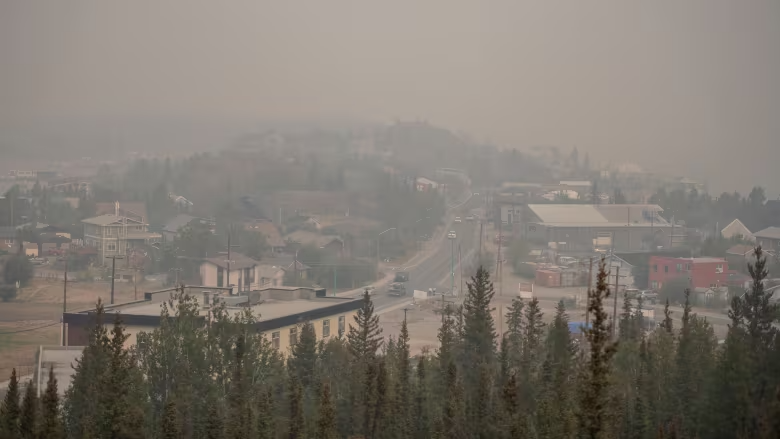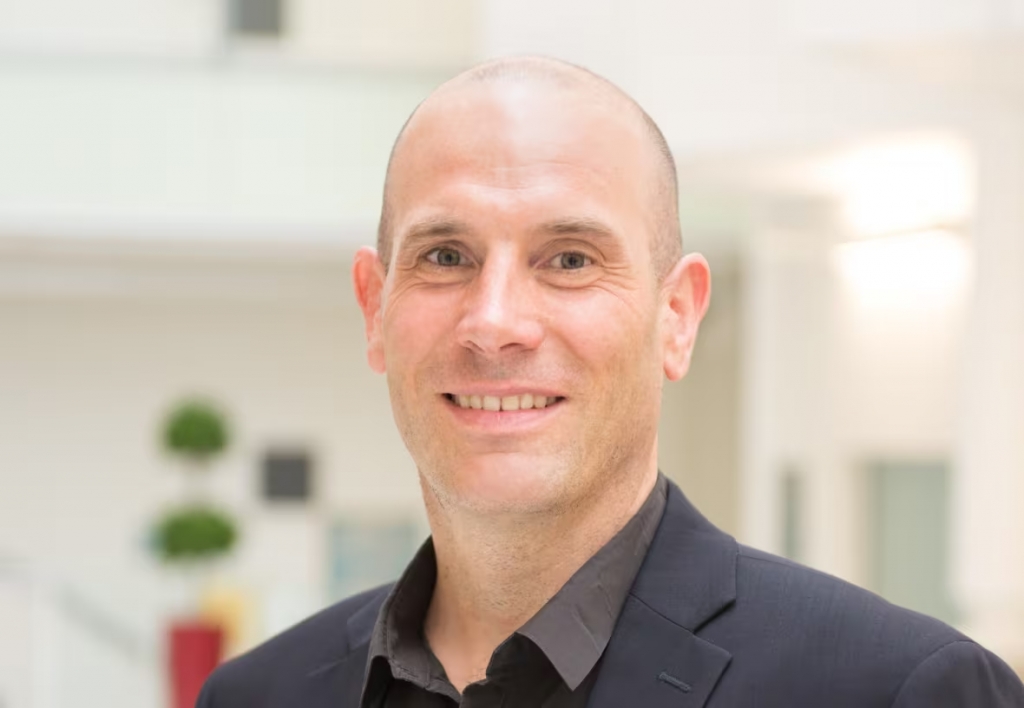Canada News
Advocates call for plan to help northerners cope with wildfire smoke

Heavy smoke from nearby wildfires fills the sky in Yellowknife last August. The territory’s chief public health officer has said health impacts from last summer’s wildfires will take years to understand. (Angela Gzowski/The Canadian Press via RCI)
· CBC News
Not much known about the long-term effects of exposure to wildfire smoke, researcher says
Some advocates in the North are calling for legislation that recognizes wildfires as a public health issue.
In October, Dr. Kami Kandola, the N.W.T.’s chief public health officer, said health impacts from the summer of 2023 will take years to understand.
For some, those impacts are already being felt. Paul Josie lives in Old Crow, Yukon, which was evacuated due to wildfires in August 2023.
“That constant, thick smoke caused them to have trouble breathing, coughing … During the winter, when people got colds, those coughs lingered for a long time,” Josie said.
Yukon NDP Leader Kate White recently raised the issue in the legislature, and spoke about the effects of harmful wildfire smoke on firefighters.
“Despite overwhelming evidence linking wildfire exposure to higher cancer risk, wildland firefighters in the Yukon are excluded from presumptive coverage that recognizes cancer as an occupational disease,” said White.
In response, Richard Mostyn, the minister responsible for the Yukon Workers’ Safety and Compensation Board, said that his department is borrowing data from Quebec to better understand a number of occupational cancers, including cancers affecting firefighters.
How toxic is wildfire smoke?
Increasingly severe wildfire seasons are prompting a new wave of research on the impacts of wildfire smoke on human health.
Dr. Christopher Carlsten is a respirologist and director of the Air Pollution Exposure Laboratory at the University of British Columbia, and Canada Research Chair in Occupational and Environmental Lung Disease. He says wildfire smoke is still an under-researched area.
“We don’t know as much as we would like about the acute effects, the short-term effects. But we know almost nothing about the long-term effects of fire smoke,” he said.


A great deal of what researchers do know about how the particulate matter in smoke affects lungs comes from studies done on car exhaust.
“The deeper that particles get into the lungs, the more potential adverse effects they have, and we’ve learned that from traffic-related pollution,” he said.
The research that has been done on wildfire-specific impacts does show some cause for concern.
Carlsten cited a study published in the medical journal The Lancet in 2022 that found slightly increased risks of lung cancer and brain tumours in individuals exposed to a wildfire within 50 kilometres from their residence.
How should leaders respond?
Given the risks, Leanne Goose, a public health researcher in the N.W.T., wants the current approach to line up with safety precautions taken during the COVID-19 pandemic, with public health orders to shut down events.
“We had situations in the smoke where people were half-dying,” Goose said.
Goose said these measures would ensure workers have the right to stay at home when conditions are potentially unsafe.
Some events were cancelled in the N.W.T. last year because of smoke, including a welcome home event for Yellowknife residents after the city’s evacuation ended.
But Carlsten isn’t sure stay-at-home orders are the answer. He says without knowing the full extent of the risks, it’s difficult to balance the economic and mental health impacts of asking everyone to remain indoors – potentially for weeks at a time.
“As concerning and problematic as this is, and as hard as it is to watch people outside in these heavy, heavy exposure scenarios, the alternatives have their own problems too,” he said. “The reality is that most people can tolerate pretty high levels for limited amounts of time.”
Carlsten does believe governments should play a greater role when it comes to prevention. In January, he co-authored a study which found investing in air purifiers for the public may end up saving public dollars.
“Air filters are proving to be as good if not better than a lot of the medications we fund,” he said. “We need to think of this as part of public health. We pay for medicines, so why not interventions like air filters? Because this problem is not going away anytime soon.”
In statements, the Nunavut and Yukon governments said they will not be issuing stay-at-home orders during periods of dangerous air quality. The N.W.T. government did not respond to a request for comment by deadline.
In the Yukon, workplace dangers are handled through the Yukon Workers’ Safety and Compensation Board. In the N.W.T. and Nunavut, it’s the Workers’ Safety and Compensation Commission.
The Yukon Workers’ Safety and Compensation Board says it’s up to an employer to ensure a workplace is safe and to assess any hazards for workers, including wildfire smoke. The board’s website also says employees can also refuse to work if they believe, “based on reasonable grounds,” that the work is unsafe.
This article is republished from RCI.





















